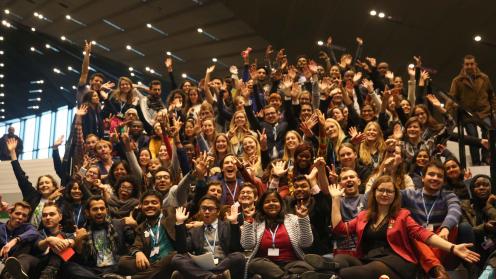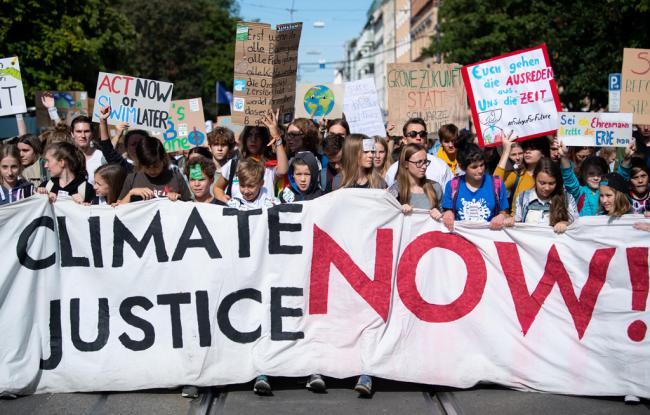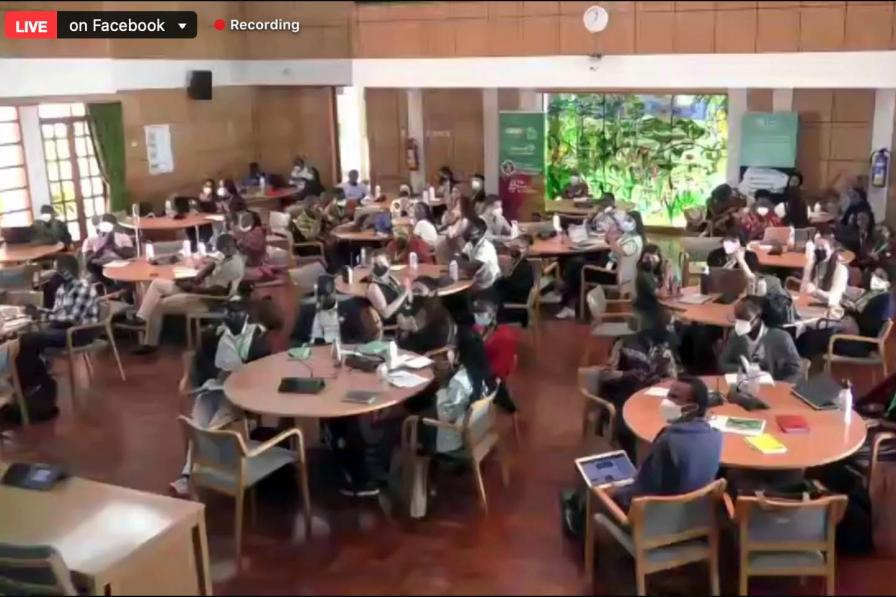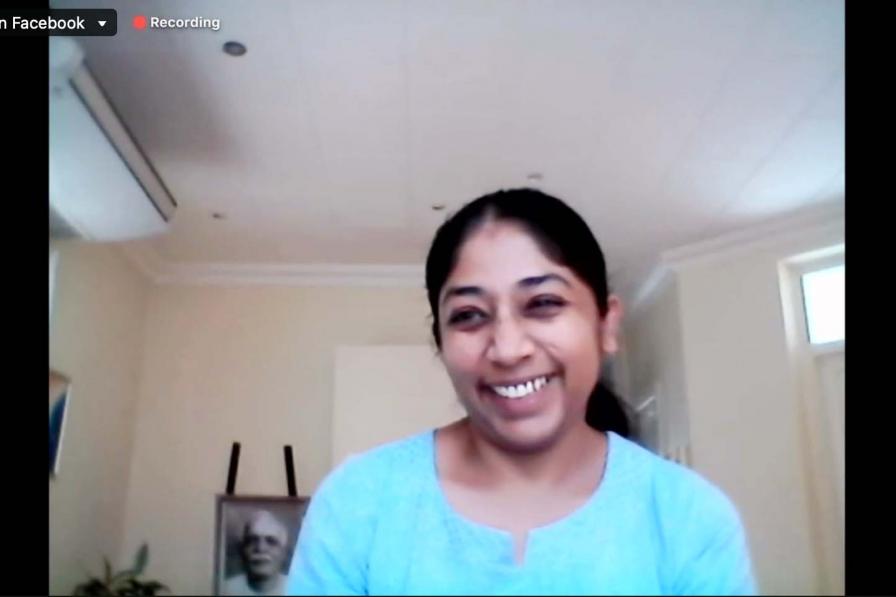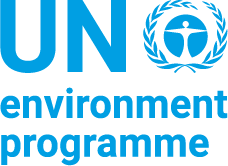The Youth Environment Assembly (YEA) 2022 convened for its second day to address a range of topics, including climate and environmental justice, climate anxiety, and marine plastics and litter. Youth participants also held a dialogue with Member States.
During the “Climate & Environmental Justice in the Global South” session, participants explored their experience of the impacts of climate change, and why these impacts fall disproportionately in the global south and on Black, Indigenous, and People of Color (BIPOC) communities. Eric Njuguna, Climate Justice Organizer, facilitated the session, and challenged participants to consider that “all justice works are climate works, but not all climate works are climate justice works." In fact, he said some climate works could be contributing to climate injustices. He remarked that climate finance should not lead to debt, but rather be understood as reparations and cited the Bali Principles of Climate Justice as a guiding framework.
During the session on marine litter, Heidi Savelli, UNEP, provided an overview of UNEA decisions on marine litter, noting this issue has been under discussion since UNEA-1. She said three resolutions have been tabled for discussion at UNEA-5.2, saying that proposals from Japan and Rwanda call for establishing an international negotiating committee (INC) to develop and negotiate a legally-binding agreement. She said a third proposal from India proposes a more voluntary approach.
During the discussion, participants queried the relevance of the decisions to youth and children, elucidated further differences between the proposals, clarified the steps on how these will be negotiated and subsequently inform an agreed resolution adopted at UNEA-5.2, and described aspects of meaningful youth engagement.
The session on climate anxiety provided practical steps to reduce the effects of anxiety due to climate change in order to transition to climate action. Participants were guided through the five steps of acceptance, disengagement, realization, implementation, and decision, supporting the ability to carry out work with courage and confidence.
During the dialogue with member states, Rasa Ščeponavičiūtė, Deputy Permanent Representative of the EU to UNEP, reiterated the importance of UNEA as a venue to make decisions on pressing global environmental matters with the engagement of stakeholders, such as the proposed legally-binding agreement on plastics.
Ana Elena Campos Jiménez, Deputy Permanent Representative of Costa Rica to UNEP, confirmed that Costa Rica values the involvement of youth in global environmental negotiations.
Mapopa Kaunda, Deputy Permanent Representative of Malawi to UNEP, emphasized the potential of youth to influence negotiations.
Sebastián Nicolino, Deputy Permanent Representative of Argentina to UNEP, characterized UNEA-5.2 as a very important space in which member states and stakeholders can bring their voices and realities to Nairobi and seek the help of UNEP to implement national policies.
Marek Rohr-Garztecki, Permanent Representative of Poland to UNEP, encouraged youth to present their ideas in a creative and positive way, trying to find receptive national delegates to represent their ideas in the negotiation process.
The ensuing discussion addressed: green recovery in the face of corruption; the role of young maritime professionals in addressing the marine litter problem; how best to ensure capacity building for youth; and means of implementation for UNEA resolutions. Youth participants articulated demands for increased urgency, saying that “our lives depend on the solutions we find here.” They raised questions, including: the status of the political declaration that will be the UNEA-5.2 outcome document; and how to support communities in developing countries and the role of governments to provide alternatives like education on renewables and incentives for climate solutions.
IISD's Summary: A summary report of this event will be available on this site on Wednesday, 23 February 2022.
To receive free coverage of global environmental events delivered to your inbox, subscribe to the ENB Update newsletter.
